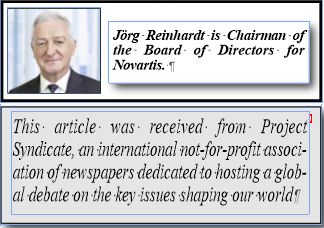ZURICH – Virtually every country worldwide has committed to achieving universal health coverage (UHC) by 2030, as part of the United Nations Sustainable Development Goals. But some countries are progressing much faster than others in delivering equitable access not only to health services, but also to affordable medicines and vaccines. Among those leading the pack is Vietnam.
Today, 87.7% of Vietnam’s population – or 83.6 million people – are covered by health insurance. According to the latest Global Monitoring Report on UHC, published jointly by the World Health Organization and the World Bank, 97% of Vietnamese children now receive standard immunizations, compared to 95% of children in the United States. Since 1990, the country’s maternal mortality rate has fallen by 75%.
Vietnam has managed to reach such impressive milestones ahead of schedule, despite having an average per capita income of just $2,342 as of 2017. The key to its success is not the scale of investment in health care, which amounts to a modest $142 per person annually (including both public funding and out-of-pocket expenses), but rather how the government uses its resources, including the country’s intellectual capital.

